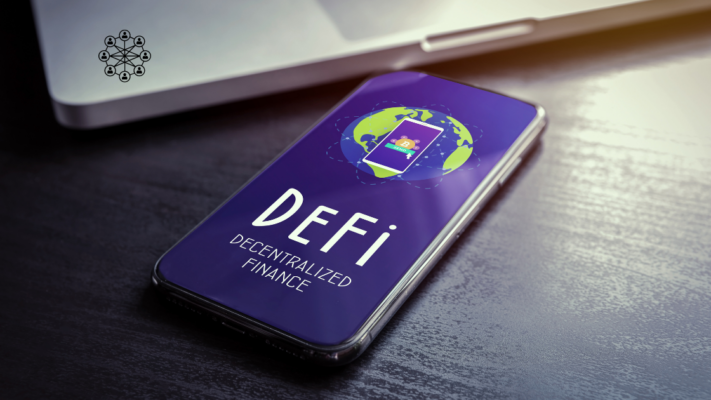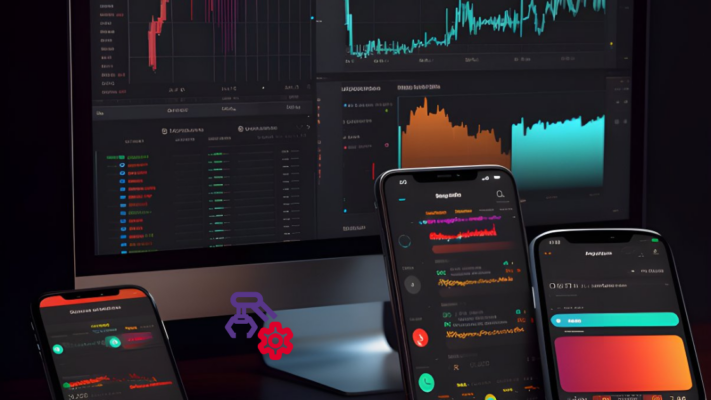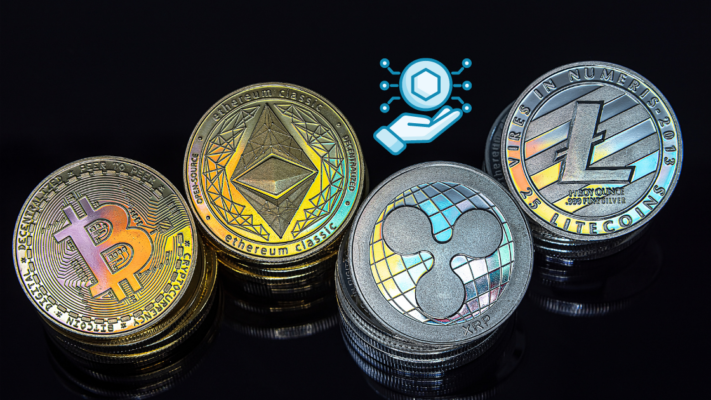Cryptocurrency exchange development has become more significant nowadays, as the global cryptocurrency market expanding rapidly than any other industry! As the demand for cryptocurrencies such as Bitcoin (BTC), Ethereum (ETH), etc. are skyrocketing in the current “decentralized” era, there’s nothing to surprise about that more and more entrepreneurs are venturing into the world of crypto and developing an ultimate cryptocurrency exchange to attain their business goals.
Developing a premier crypto exchange company can bring you un-imaginable profitability from the cryptocurrency-dominant era!
However, developing an exchange platform might leave your business behind the competition as the crypto market matures. So, your crypto exchange service must evolve to meet new demands and make use of advanced technologies. Here’s a comprehensive look at the emerging trends and technologies shaping the future of cryptocurrency exchange development.
Let’s get into the future possibilities of cryptocurrency exchanges!
Key Trends and Innovations in Cryptocurrency Exchange Development
1. Decentralized Finance (DeFi) Integration

Decentralized Finance has altered the way financial services are provided by removing intermediaries. DeFi applications, which operate on smart contracts, have gained immense popularity for their ability to offer lending, borrowing, and yield farming services. Exchange platforms like Uniswap and Sushiswap have demonstrated the viability and popularity of Decentralized Exchanges (DEXs). These exchanges enable users to trade directly from their wallets, increasing security and privacy.
DEXs and centralized exchanges (CEXs) are exploring ways to interoperate, allowing users to benefit from the liquidity of CEXs while maintaining the security of DEXs. Technological developments such as Automated Market Makers (AMMs) and Layer 2 solutions like Optimistic Rollups and zk-Rollups are increasing scalability and reducing transaction costs in the DeFi space.
2. Enhanced Security Measures

With the increasing number of cyber-attacks on crypto exchanges, security remains a top priority. Hence, you can adopt more sophisticated security measures to protect user funds and data during cryptocurrency exchange development. Multi-Signature Wallets require multiple private keys to authorize a transaction, reducing the risk of single-point failures. Hardware Security Modules (HSMs) securely manage and store digital keys, making sure the integrity of cryptographic operations.
Zero-Knowledge Proofs (ZKPs) enhance privacy and security by allowing one party to prove to another that they know a value without revealing it. Additionally, AI and Machine Learning technologies are being used to detect and reduce fraudulent activities, further increasing overall security protocols.
3. Regulatory Compliance and AML Solutions

As governments and regulatory bodies worldwide develop stricter regulations for the crypto industry, you must ensure compliance with Know Your Customer (KYC) and Anti-Money Laundering (AML) laws during your cryptocurrency exchange development. Implementing automated KYC/AML processes helps verify user identities and monitor transactions for suspicious activity.
RegTech solutions use regulatory technology to ensure real-time compliance with evolving regulations. Blockchain analytics tools analyze blockchain transactions to detect suspicious patterns and ensure compliance with AML regulations. Identity verification solutions, using biometric and AI-driven technologies, streamline the KYC process, making it more efficient and secure.
4. Artificial Intelligence and Machine Learning

AI and ML technologies are transforming various aspects of cryptocurrency exchange development operations, from customer service to trading strategies. Enhanced trading algorithms powered by AI can analyze vast amounts of data to execute high-frequency trades and optimize trading strategies. ML algorithms can analyze user behavior to provide personalized trading recommendations and alerts.
AI-powered chatbots and virtual assistants offer 24/7 customer support, resolving common issues and improving user satisfaction. ML models also play a critical role in fraud detection systems, identifying anomalies and fraudulent activities in real time, thereby increasing the security of exchanges.
5. Improved User Experience (UX) and Interface Design

As competition among exchanges intensifies, providing a superior user experience becomes crucial in your cryptocurrency exchange development process. A well-designed interface can attract and retain users by making trading more accessible and enjoyable. Simplifying the user interface to cater to both beginners and experienced traders is essential. Ensuring that exchange platforms are fully functional on mobile devices meets the growing demand for mobile trading.
Responsive design ensures interfaces adapt smoothly to different screen sizes and devices. Incorporating gamification elements can engage users and enhance their trading experience, making the platform more appealing and interactive.
6. Cross-Chain Trading and Interoperability

The cryptocurrency ecosystem includes multiple blockchains, each with its own set of assets. Cross-chain trading and interoperability enable smooth transactions across different blockchain networks. Allowing users to trade assets from different blockchains increases the liquidity of the exchange. Providing access to a broader range of cryptocurrencies and tokens diversifies the asset offerings of the platform.
Technologies like atomic swaps enable peer-to-peer trading of cryptocurrencies from different blockchains without third parties. Interoperability protocols like Polkadot and Cosmos facilitate cross-chain communication and transactions, paving the way for a more connected and versatile crypto ecosystem.
7. Advanced Trading Features and Tools

To cater to sophisticated traders, you must incorporate advanced trading features and tools that enhance the trading experience during your crypto exchange development. Margin trading allows users to trade with leverage, increasing their potential returns (and risks). Offering products like futures contracts and options provides more trading strategies and opportunities.
Algorithmic trading bots automate trades based on predefined strategies, reducing the need for constant monitoring. Real-time data analytics tools provide traders with real-time data and analytics, enabling them to make informed decisions and optimize their trading strategies.
8. Tokenization of Assets

Tokenization involves converting physical and digital assets into blockchain-based tokens, which can be traded on cryptocurrency exchanges. This trend offers new investment opportunities by allowing the tokenization of assets like real estate, stocks, and art pieces. Fractional ownership enables investors to own a fraction of high-value assets, increasing accessibility and democratizing investment opportunities.
Security tokens, which comply with securities regulations, represent ownership in an asset and provide a secure and regulated investment option. Stablecoins, pegged to real-world assets like fiat currencies, offer a stable trading option, reducing volatility and providing a reliable medium of exchange.
Wrapping: Emerging Technologies in Cryptocurrency Exchange Development
We know that the cryptocurrency exchange landscape is rapidly developing, driven by technological advancements and emerging trends. By adding DeFi, increasing security measures, ensuring regulatory compliance, using AI, and improving user experience, exchanges can stay ahead of the curve. Embracing cross-chain trading, advanced trading features and the tokenization of assets will further enhance their offerings, attracting a diverse range of users and solidifying their position in the market.
Staying updated with these trends and technologies is crucial for anyone involved in cryptocurrency exchange development, as it ensures they remain competitive and responsive to the ever-changing demands of the crypto ecosystem.
Let’s ultimately develop your cryptocurrency exchange script, and ensure can thrive in the evolving decentralized landscape.
Aparna Babukuttan is a content writer at Bytesflow Technologies who writes with passion and emotions. She has a keen interest in exploring the latest technologies and has years of experience in writing for artificial intelligence and Web3 including blockchain, NFT, metaverse, and cryptocurrency. Beyond Blockchain, Aparna also lends her expertise to crafting captivating narratives for on-demand food delivery businesses.

